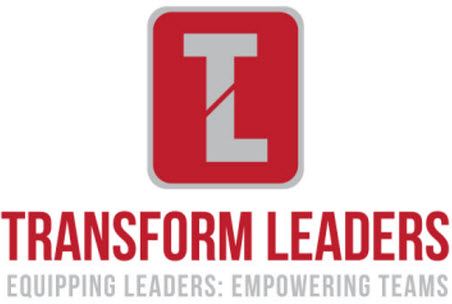We are becoming more and more aware that our mindsets influence our behaviour. Each mindset creates a result springing from our habitual behaviours.
Many good leaders I work with see the results without realising its origin – their mindsets. For instance, they know that they are overwhelmed with high work volumes without seeing that the origin – a mindset. Often it isn’t that the mindset is incorrect, it is just that the consequences of holding that belief or mindset is unhelpful for them and others.
Let me share 4 mindsets I come across all the time. Some of these might be very challenging. You might argue with me, that is okay. What I’d encourage you to do to examine the results and question where part of the issue might be the mindset you hold.
Let the fun begin.
1 – “It’s faster if I do it myselfâ€
For many capable leaders, especially when they don’t want to let go, keep saying; “It’s faster if I do it myselfâ€.
The result – they’re left doing everything by themselves and feeling responsible for it all.
The team around you becomes atrophied through underuse and you become exhausted. Self-sufficiency is eroded and they become more and more reliant on you, the leader for decisions and production.
People argue “it’s faster if I do it myself†when actually it’s not. You may be faster that one time wherein it could take you half an hour but it might take other people an hour or two if they are doing it for the first time. But if you say it again this week and the weeks after, you’ll have spent more time on that particular task because you’re the only one who can do it. You’ve somehow convinced yourself that you’ve got special skills and special powers and no one else can do it other than you.
But if you were to ask yourself, “Will I ever have to do this again?†if the answer is yes – train someone else, delegate, build a system.
What you can do is stop and build a system around how you do that task. And then you’d find someone else and you train them. Training might take you 3-4 hours however once the task has been delegated and handed over to someone new, you’ll have saved yourself hours of time to do other different tasks.
Habit #1 is build systems that other can replicate
2: “Nobody Can Do It as Good as I Canâ€
If you’ve said this to yourself a hundred or a thousand times then you’ve probably convinced yourself that “no one can do it as good as what I can.†Now this would be a tragedy because you’re destined to stay really busy and really stressed. Not to mention the bottleneck of productivity.
Again if you want to grow, if you want to help more people, serve more customers – you have to learn to let go.
This means you need to lower some of your ego a little bit and realise the fact that there are many amazing talented people. Rather than feeling that you’re the best at everything, you should find people that are actually better than you at completing certain tasks.
Another thing is that these people don’t have to do it as good as you can, just divide the task. They can accomplish 80-90% of the task, which may take them 10 hours. At that point, you can then come in to do an hour or two to polish it off and make it 100% complete.
Habit #2 – Letting go of things you like and are good at so others can develop.Â
- “I don’t want to let anyone down!â€
Focus is the critical habit. Learning what is high value work and what is distraction. Being comfortable to saying NO to good things, but not the critical few. The easiest way to burn out as a leader is trying to please everyone. Firstly, it is impossible. Secondly, it is the quickest way to being ineffective. When we are running around trying to satisfy everyone else’s agenda, we are not focused on what we are paid to deliver and can do uniquely well.
We have to learn to avoid distractions through priorities and planning which allows gaps to be appropriately responsive to those around us.
THE ULTIMATE MINDSET!
The mindset which counters all of these and creates the impetus to be a great leader is all about developing and coaching those in our responsibility.
Habit #3 – Creating and maintaining a simple focus
- “I’m not an organised or disciplined person.â€
For many leaders it’s a common experience for many modern workers. We’ve never been more overcommitted, over connected and overwhelmed.
What gets stretched to breaking is our systems of organising ourselves, keeping on top of information and the workload. Keeping ourselves from slipping into procrastination, overwhelm and doing busy work is a huge challenge for many leaders.
The issue is that to implement a new system to create new habits and approaches. This can be challenging.
Realise that when we tell ourselves, “I’m not that disciplined a personâ€, this self-talk creates an identity that you will live up too’.
The second thing to realise is that we all have discipline, it’s just that some of the habits we have formed around how we organise ourselves are not helpful. For instance, I’m might be very disciplined in checking my emails every 15 minutes. Why am I disciplined, because a habit has formed!
The challenge is the formation of new habits, not being disciplined.
(Next blog I’m going to give you a 5 step process to build new habits)
Habit #4 – Assess the habits you use to get things done. Are they helping or hindering your productivity?
Â
THE FIRST HABIT: TRY NOT TO “BE HELPFULâ€
We are all so keen to help.
- To jump in.
- To fix things.
- To “add valueâ€.
- To provide the solution, the answer,
- To show the next step.
There is a good reason for that. You have a good heart. You’re genuinely trying to help. And there are times when that’s exactly the right thing to do.
And this is an overdeveloped muscle. As the answer to everything, the default habit for every situation, it’s exhausting and debilitating. (See “Vicious Cycle #1)
The new habit is not actually a refusal to help. It’s a process for getting clear on exactly how they’d like you to help, so you can in fact be less busy but more useful.
Someone once defined an adult-to-adult relationship as, “Being able to ask for what you want, knowing the answer maybe No.â€
That’s much harder to do than it sounds. It’s hard, often, to know what you want. It’s hard, often, to ask for it. And it’s hard to realize you have a choice to say; Yes or No or Maybe, when somebody makes a request of you.
The First Habit is to ask what exactly they want from you before you start providing it.
- Help them get clear on what they really want. (They don’t often precisely know.)
- Stop yourself over-delivering solutions they likely don’t want or need.
- Break the cycle of overdependence and bottlenecking.
WHEN…
someone seems to need my help
INSTEAD OF…
assuming I know what help they need and jumping in with the solution, the answer, the action plan, the next steps …
I WILL…
ask them, “How can I help?†or (more bluntly) “What exactly do you want from me?â€
THE SECOND HABIT: SLOW DOWN THE ADVICE MONSTER
Have you ever been in a school with young kids filled with enthusiasm?
The teacher poses a challenge and hands shoot up into the air, straining, almost dislocating, in the eagerness to answer the question.
Sure, we learn how to affect a coolness to all of that as we progress through the school system, but in truth it never leaves us.
As someone starts describing a problem to you, even though you don’t really know them, or the other party, or most of the details of what’s going on, or any of the context … you’re pretty sure you know exactly what they need to do.
Welcome to The Advice Monster.
It lives within us all. And it probably wouldn’t be a bad intervention to have most of us sitting around a circle and admitting our addiction, saying things like, “Hi, my name is Michael, and I’m an Advice Giver.â€
Not that advice is always a bad thing to offer up.
But the Second Habit is all about slowing the rush to offer up your ideas. If you can delay that “You should …†or “Have you thought of …?†moment by even a minute, your impact as a manager and a leader changes.
Your goal is simply to hear their ideas first.
People will almost always show up with some initial thoughts and ideas to solve the challenge they’re wrestling with. You’ll be surprised and delighted at how often your job will be to simply agree with the idea they have and to encourage them to do it. And they’ll be surprised and delighted at how smart and empowered you make them feel.
WHEN…
someone asks me “how do I…?â€
INSTEAD OF…
telling them exactly how to do it…
I WILL…
ask them, “That’s a great question and I’ve got some ideas which I’ll tell you … but let me ask you, what are your first thoughts on how to do that?â€
THE THIRD HABIT: CREATE THE LEARNING MOMENT
Of the very many definitions of coaching that exist in the world, one of the most powerful comes from Sir John Whitmore’s book Coaching for Performance, in which he says coaching is, “unlocking a person’s potential to maximize their own performance. Helping them to learn rather than teaching them.â€
As a manager and a leader, your job is to help them learn.
Unfortunately, people don’t learn when you tell them something.
They don’t even learn when they do something.
People only really start to learn when they reflect back on what just happened and ask themselves, “What did I learn just now?â€
Winston Churchill once said, [people] “occasionally stumble over the truth, but most of them pick themselves up and hurry off as if nothing ever happened.†That’s true of learning moments as well. We’re so busy just trying to do stuff that we miss the opportunity to learn all the time.
The Third Habit changes that.
It creates a brief moment at the end of any conversation, a private “one on oneâ€, a public team meeting, and everything in between, to articulate what was useful, what was valuable, what needs to be learned.
The Third Habit creates the A-ha! Moment for them.
That helps you, as it tells you what’s working (and what’s not) so you can do more of that the next time.
WHEN…
I finish a meeting, whether it’s one to one or with a group, whether it’s internal or with external partners…
INSTEAD OF…
wrapping things up and hustling on to the next thing in your calendar…
I WILL…
ask them, “What was most valuable for you from this meeting?â€
Maybe there is another mindset that produces behaviours that are not helpful overall. Use the same process – WHEN…INSTEAD of…I WILL.Â
Let me know how you found this article.

